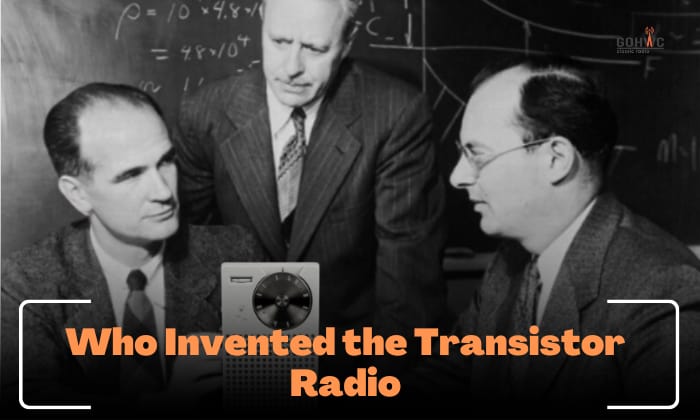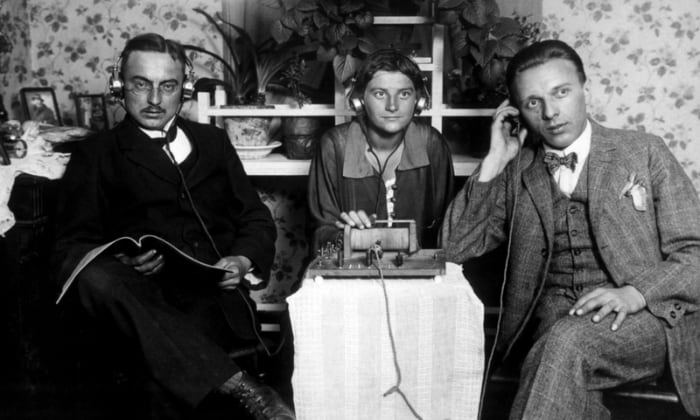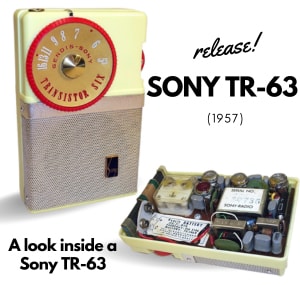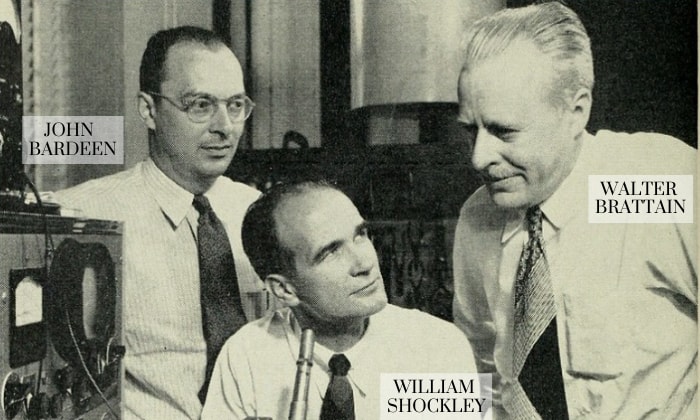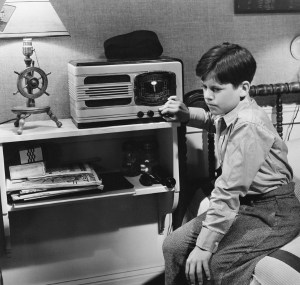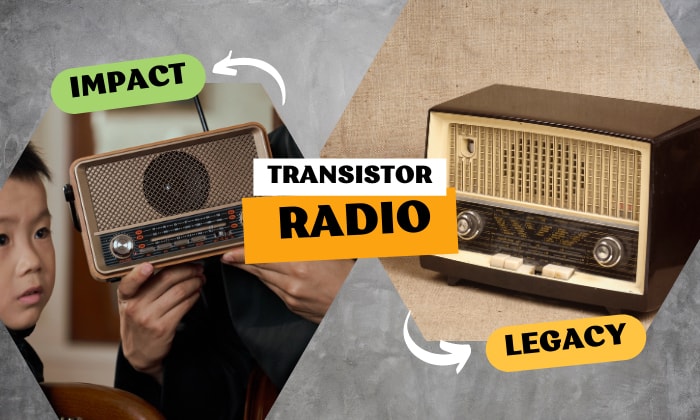Scientists at Bell Laboratories, including John Bardeen, Walter Houser Brattain, and William Shockley, invented the first transistor radio. This was a significant milestone in the history of technology, as it revolutionized the electronics and communications world.
The invention of the portable transistor radio changed the way people across the globe listened to music, news, and other programs by making it more affordable than ever before.
For a deeper insight, join us as we explore when the transistor radio was invented and more about the figures who invented the transistor radio.
Contents
What is a Transistor Radio, and When Was It Invented?
Transistor radio definition
A transistor radio is a portable radio receiver that uses transistors to receive and amplify sounds. It was invented in 1947 and officially released in 1954, making it the first commercial radio available.
Transistor radio history
In 1954, the United States produced the TR-1, the first small transistor radio. It had only four Texas Instruments due to the expensive cost of the transistor. The retail price of a transistor radio ranged from $49 to $50.
However, it was not until the release of the Sony TR-63 in 1957 that the transistor radio gained widespread popularity. It became the most popular electronic device during the 1960s and 70s.
Before the invention of the vintage transistor radios, radios used vacuum tubes. Although portable, they were heavier and more fragile. Additionally, vacuum tubes had a shorter lifespan and were less efficient than transistor radios.
Who Invented the Transistor Radio & How Did It Change Communications?
The transistor radio was invented by a team of scientists led by John Bardeen, William Shockley, and Walter Brattain at Bell Laboratories. This invention changed communication in various ways, including:
1. Creating a new culture
The introduction of the transistor radio had a profound impact on popular culture. It played a significant role in the growth of music and radio programs, contributing to music culture’s emergence and rock and roll’s widespread popularity.
Moreover, it revolutionized the way people engaged with music, forming new listening habits.
2. Portability
Due to its portable nature, the handheld transistor radio revolutionized how people enjoyed music, news, and other broadcasts. Its small and lightweight design allowed individuals to carry it with them, providing personal access to radio entertainment wherever they went.
3. Increased efficiency
Transistor radios revolutionized the industry by enhancing portability and efficiency. They were smaller and more compact than their predecessors, which relied on vacuum tubes for amplification. This made them accessible and convenient for everyday use.
4. Widened participation
The invention of transistor radios was a game-changer for bringing information and entertainment to more people.
These portable radios enabled those living in rural areas and those who couldn’t afford traditional radios to access news and entertainment. This helped bridge the gap between urban and rural populations.
The Impact and Legacy of the Transistor Radio
The transistor radio has significantly impacted society and left a lasting legacy. Let’s see its key impacts and legacy below.
1. Impact of the transistor radio
Below are some of its major impacts:
- Spread of Information. The transistor radio revolutionized how people accessed information. Its portability made it easy to carry around and stay informed about current events, including religious and educational matters. This was especially important during times of crisis.
- Revolutionized Culture. Transistor radio played a significant role in the growth and dissemination of diverse cultures, enabling them to reach a wider audience. It served as a medium for people to explore new artists, connect with others, and keep up with the latest music trends.
- Increased Interactions. During that time, the radio was a popular means of entertainment that brought people together through shared content. Radio shows, sports, and music were listened to by many, creating a shared cultural experience and promoting social interactions.
2. Legacy of the transistor radio
Let’s explore some important aspects of its lasting legacy below:
- Improved Technology
The introduction of the transistor radio greatly improved technology. It paved the way for developing smaller, more portable, and more efficient devices such as MP3 players and smartphones.
- Historical Icon
The transistor radio was a significant milestone in both technological and cultural progress. It replaced the cumbersome and stationary radios with portable ones, transforming people’s relationship with media and technology.
- Media Accessibility
Transistor radio played a significant role in the growth of media by providing an accessible and affordable means of getting information. Its portability broke the monopoly of traditional media outlets, giving more youth the freedom to listen to music and the world news.
- Transformed Lifestyle
The transistor radio’s compact design significantly impacted people’s way of living. Its sleek design inspired portable radio designs like CD players and Walkmans. The concept of a personel radio, portable, became essential in modern lifestyles.
Conclusion
You should now know who invented the transistor radio and its uses. This portable radio was the first of its kind and had a major impact on the world of electronics and communications. It paved the way for the development of more portable devices.
The transistor radio use revolutionized how information was disseminated and made technology and media more easily accessible to the masses. Its significance also marked a turning point in shaping the modern world.

Hello! I am Hart, the content writer and editor here at G0HWC. I used to be in the same local radio club with Howe, and he convinced me to join him in spreading my love for the radio with others. With a background in radio studies, I spend every day crafting accurate, easy to read content on various topics related to owning and using radios. I hope that my content can help you confidently venture in your radio journey!

